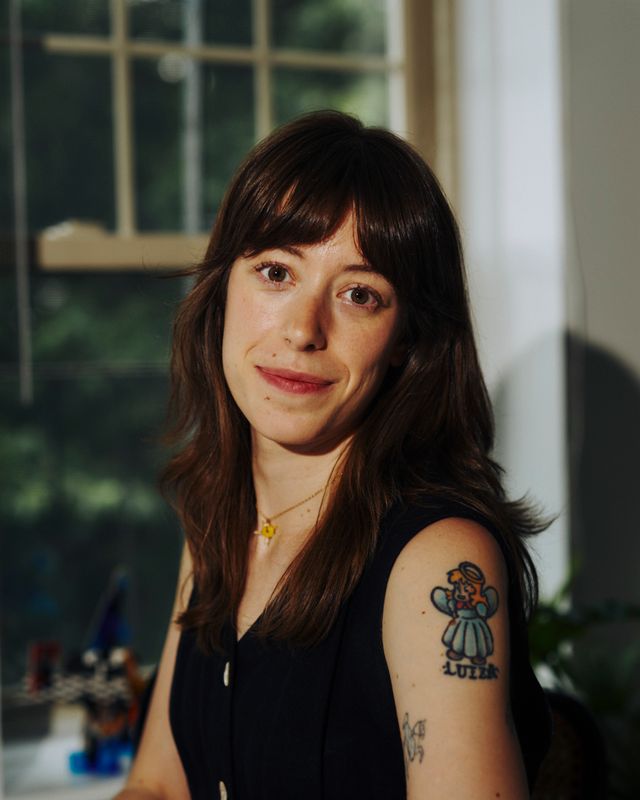
How I Discovered The Meaning Of My Own Name
I fell in love with literature when I was very young — always straining to read something slightly more difficult than my age and experience called for. Precocious is a good word for what I was when I cracked open my copy of Virginia Woolf’s “The Years” with only 10 and some change to my name. This naturally led to my pursuit of an English literature degree as an undergraduate, where more than half of the curriculum was devoted to British literature. I read Ann Radcliffe, the Brontë sisters, and George Eliot. I spent a summer in London studying the British novel. I visited Bath. All of this, and I never read Jane Austen.
I would have read Austen if she were assigned — and, of course, I read many things besides what was on the syllabus at school. I might have watched the well-loved BBC adaptation of “Pride and Prejudice” at a sleepover or caught part of it airing on TV. So, how exactly did I miss this?
It wasn’t until the summer of 2012, at the age of 21, that I took notice of my own name. I was spending the warm months facilitating a writer’s retreat on the Cape when an older, male writer told me that I had a literary name. (The irony now is that I can’t remember his name and he’s the established writer!) I took the compliment and somehow immediately knew what he meant. It was about Austen. There’s something to Plato’s theory of anamnesis after all.
“It wasn’t until the summer of 2012, at the age of 21, that I took notice of my own name.”
My name had been there all along for the taking. Maybe you missed it, too — or saw it without really seeing it. My last name is D’Arcy, or Darcy as the newest wave of bureaucratic recordkeeping software would have it. (How is it that more advanced technology is less accommodating to an apostrophe?!) The Austen reference with all its gendered play is right there. At different points in my life I’ve been Ms. D’Arcy and Mrs. D’Arcy, too.
Looking back now, I see I hadn’t missed the Austen reference entirely. In fact, it seems undeniable that my name played a part in directing my literary interests and course of study in British literature. Moreover, in my adolescent years, I rented “Clueless” each time we went to the video store. I must have watched it a hundred times. Only later did I realize the source material: Austen’s novel “Emma.”
“Looking back now, I see I hadn’t missed the Austen reference entirely.”
When I sought out psychoanalysis, I chose my analyst based on a handful of criteria. The usual things came up, like what school of thought she adhered to, and where her office was relative to my place. I remember looking at her bio online and noting her interest in literature as a point of intrigue. Not once did I think about her name. It took months, maybe years, before I realized she had a name plucked from the cover of an Austen novel. It was there in analysis that I really learned what it meant for the unconscious to surprise you. If there is such a thing as repression, what is repressed reappears to you from without. You might, like I’m describing, find yourself surrounded by signs without realizing their cause.
As part of this analysis, a practice which I appreciate for the attention it pays to symbolic transmission, I began to unpack what it was that my name meant to me. Along with the Austen reference came a cascade of questions about the marriage plot; my own identification as a writer — or, better yet, a character in someone else’s story; and many such branching inquiries. But, I found, there were still more enigmatic elements that I hadn’t taken stock of in my name, the very one I use each day to introduce myself to the world.
“It seems undeniable that my name played a part in directing my literary interests and course of study in British literature.”
In numerous sessions, I’ve discussed a prevailing confusion about my first and last names. To start, both were given to me by my father — which makes sense for a last name, but for a first? Growing up, I slept in a bedroom with a print hanging on the wall reading “Ashley” in a Gothic script. It explained the meaning of my first name: “Of the Ash tree.” I knew enough that de meant “of” in French…and how it was conjugated as d’ in front of a vowel. Did D’Arcy somehow mean of the ash tree? “Arc” and “ash” seemed so similar. My parents even called me Ashy when I was young — a hop, skip, and a jump away from “Arcy.”
If at this point you’re feeling confused, me too. This is a part of the puzzle I still have yet to figure out.
And then there is the cleft in my last name — the apostrophe — which always seems to be where the light gets in. (Thank you, Leonard Cohen.) I always supposed it was French until my sister relayed the results of a 23andMe test that made it clear: No, “D’Arcy” was Irish. Things quickly snapped into place — a friend visiting Ireland shared images of gravestones all with the name D’Arcy. Right, I thought, I’m Irish. My interest in French theory suddenly seemed, well, totally put on. I had to find my way back to the thought that I loved without the cover of my last name. Without my French identity, it was less a destiny and more a choice.
These conversations fade in and out of my work with my analyst, taking on a different significance with each new moment. It takes forever to figure out a name.
“It takes forever to figure out a name.”
After my first month of analysis, my analyst handed me an invoice. Written longhand across the top of the page was my name: “Ashley d’Arcy.” This is, of course, how it would be written if I were French. I spoke about it in session, but I asked that she not correct it. She never has. Each month since, she’s dutifully written “d’Arcy.” I’m moved by this — but still unsure of what the gesture means. On my end, it certainly indicates that I’m not ready to give up something of the fantasy of being French. But what of her heeding my request?
It makes me think of the twofold significance of names. Names are what you’re handed before you have any say in the matter — and you’re forced to live up to your name, or not. Either way, you have to reckon with what you’ve been given. On the other hand, as soon as you’re given a name, it’s made new by your entry into it. Ashley and D’Arcy — or Darcy or d’Arcy — are now forever marked by me and what I decide to do with these words that speak me into existence. That’s the point where the searching stops and the work begins.
Do you know the meaning of your name? What do you make of it? I’d love to hear your thoughts in the comments!
Ashley D’Arcy is the Senior Editor at FashionGroomSpot. She holds an MA in Philosophy from The New School for Social Research and has contributed to esteemed outlets such as The Nation, 032c, and Yale School of Management’s Insights where she’s leveraged her expertise in making complex ideas accessible to a broad audience. In addition to her editorial work, she is training as a psychoanalytic mental health professional and provides care to patients in New York City. Ashley also explores sustainable fashion, clean beauty, and wellness trends, combining thoughtful cultural critiques with a commitment to mindful living.




